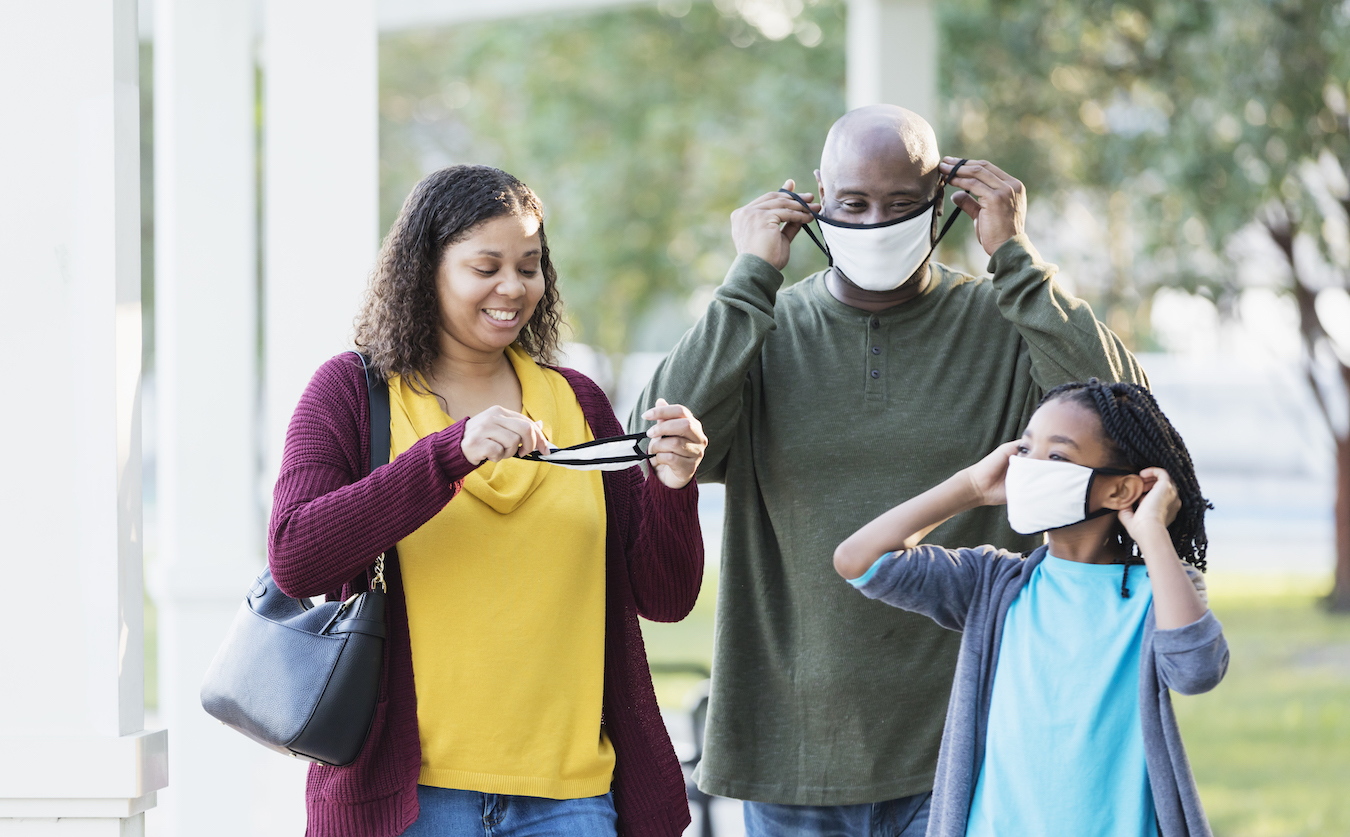Masks Have Health Benefits Beyond COVID-19 Protection

You may not like wearing a mask, but if you suffer from allergies, work in certain professions, or have chronic lung disease, a mask may be your greatest health ally.
E. Robert Schwartz M.D. FAAFP, a family medicine physician at the University of Miami Health System, reveals the short- and long-term advantages of mask wearing.
Some health experts credit mask-wearing to 2020’s mild flu season. Did you see lower rates of the flu and colds in your practice?
Dr. Schwartz: Absolutely. At my practice and here at the University, we’re still seeing a much lower incidence of upper respiratory flu-based infections due to masking. It changed when people started wearing masks. We’ve never experienced this in our society before, unlike Asian countries where it was common to wear a mask when you have cold or flu symptoms – even before COVID-19.
This past summer, there was a spike in cases of respiratory syncytial virus (RSV). Is this still a concern?
Dr. Schwartz: Currently, no, I’m not seeing a higher caseload of patients with RSV.
Which groups of people benefit most from the protection masks offer against seasonal allergies from high levels of pollen and other allergens and environmental pollutants such as red tide?
Dr. Schwartz: Every age group benefits. It’s not popular for small children to wear masks, but preschoolers routinely bring infections home to their young parents. Anyone actively sneezing, coughing, or with flu and cold symptoms can protect the community at large by masking up. Masks also protect older adults whose immune systems are not robust and anyone with a respiratory condition such as Chronic Pulmonary Obstructive Disease (COPD) or other chronic health conditions. People with COPD must exercise caution at certain times of the year when air quality is poor; a mask potentially gives them added protection against air-borne irritants.
People with allergies or upper respiratory issues can download the BreezoMeter Air Quality Index app to check real-time pollen counts and other air quality issues.
Mold and mildew also affect respiratory health and tend to collect in air conditioning air ducts. The average AC filter doesn’t filter out microparticles. My wife experienced a significant decline in her allergy symptoms when using a standalone air filtration system.
Besides health care professionals, childcare workers, and people working in high-contact public places, what professions should wear masks to protect their lungs from COVID-19 or other threats?
Dr. Schwartz: Certain professions carry a high risk for lung damage, including painters, construction workers, and people exposed to toxic fumes in auto garages. Although asbestos is no longer part of the work environment, older individuals who were previously exposed, such as shipyard workers, had a higher risk of developing lung cancer or mesothelioma. This example illustrates the importance of protecting lung health. Our environment as a whole creates lung issues. Our society needs to come to terms with the impact on lung health.
Masks protect you from things you can’t see that may be microscopic, but are still harmful (to you).
Dr. Robert Schwartz
Even homeowners need to be mindful when doing projects that involve painting, sanding, and cleaning. And mowing the lawn or blowing leaves stirs up dirt, dust, and insect debris.
Not everyone can (or wants to) wear an N-95 mask. What alternative face coverings offer protection against the coronavirus?
Dr. Schwartz: A three- to five-layer cloth mask worn over a surgical mask is 80 to 90% effective. If you’re wearing a surgical mask only, you’re not protecting yourself; you’re just protecting others. The fit on your face is important. A mask should not be open on the sides; it must form a nice seal. And masks are only effective if worn correctly. It’s completely ineffective to wear a mask under your chin or with your mouth covered but your nose exposed.
Can fully vaccinated individuals wear a lighter form of protection?
Dr. Schwartz: It depends on your immune system and the setting. If you’re outside and alone or physically distanced from others, you can remove your mask. If you’re in a crowded indoor space, a mask is imperative.
Q&A was compiled by Nancy Moreland, a contributing writer for UMiami Health News. She has written for several major health care systems and the CDC. You can also find her writings in the Chicago Tribune and U.S. News & World Report.
Tags: allergies, disease transmission, Dr. Robert Schwartz, germs, masks
